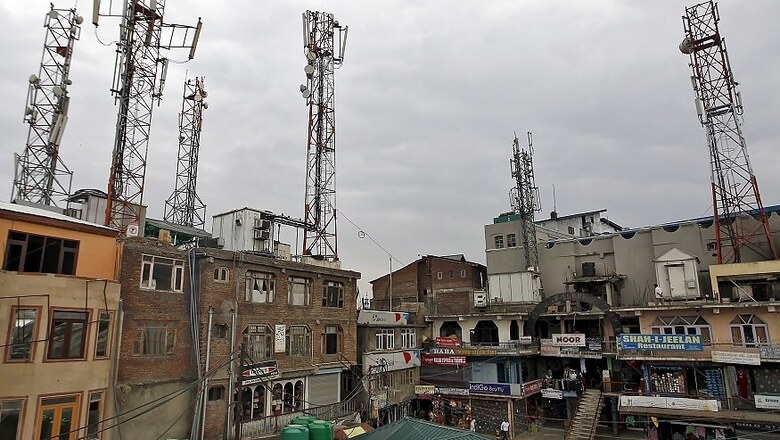
views
New Delhi: The Supreme Court has ordered companies to pay dues to the Department of Telecom within three months, CNBC-TV18 reported. The SC had on October 24 upheld the definition of Adjusted Gross Revenue (AGR) calculation as stipulated by the DoT.
A three-judge bench led by Justice Arun Mishra said that the telecom companies would have to shell out everything, sending the shares of Airtel and Vodafone Idea tumbling sharply. As a result of the ruling, Airtel might end up paying more than Rs 21,000 crore while Vodafone may have to pay more than Rs 10,000 crore.
"We have held that the definition of AGR will prevail," the bench, also comprising Justices Vineet Saran and S Ravindra Bhat, said. "We have allowed the appeal of the Department of Telecom and dismissed that of licensees (telcos)," the top court said while reading the operative portion of the judgment.
Terming the issues raised by telcos with respect to AGR as ‘frivolous’, the SC has further held that not only the original charges, but principal interest and penalties on delayed payments would also be payable.
The apex court has said that all revenues accruing to telecom operators would constitute AGR. It added that revenues gained from termination fees and roaming charges would also be included in AGR.
Telcos on their part have sought a six month computation period for amounts that would now be payable after the SC verdict.
The Department of Telecom (DoT) and mobile carriers had been sparring over the definition of AGR: companies argue that AGR should comprise just revenue accrued from core services, while the DoT says AGR should include all revenue.
Telecom providers pay DoT nearly 3-5% of AGR as usage charges for spectrum or airwaves and 8% of AGR as licence fees.
Shares in Bharti Airtel were down 5.6%, while Vodafone Idea fell 19.5 percent after the Supreme Court's decision.
In a statement, Bharti Airtel said the Supreme Court’s verdict will weaken viability of telecom sector and that the government must review its impact and find ways to mitigate financial burden on the already stressed industry. "The TSPs have invested billions of dollars in developing the telecom sector and providing world-class services to consumers. This decision has come at a time when the sector is facing severe financial stress and may further weaken the viability of the sector as a whole,” it said.
In July, the Centre had told the apex court that leading private telecom firms like Bharti Airtel, Vodafone and state-owned MTNL and BSNL have pending licence fee outstanding of over Rs 92,000 crore till date.
In an affidavit filed in the top court, DoT said that as per calculations, Airtel owes Rs 21,682.13 crore as licence fee to the government. Dues from Vodafone totalled Rs 19,823.71 crore while Reliance Communications owed a total of Rs 16,456.47 crore, DoT said.
The BSNL owed Rs 2,098.72 crore while MTNL owed Rs 2,537.48 crore, it said. The total amount, which has to be recovered from all the telecom firms, accrues to Rs 92,641.61 crore as on date, it said.
As per the New Telecom Policy, telecom licensees are required to share a percentage of their adjusted gross revenue (AGR) with the government as annual license fee (LF).
In addition, mobile telephone operators were also required to pay spectrum usage charges (SUC) for the use of radio frequency spectrum allotted to them.
Telecom operators had moved the top court against the Telecom Disputes Settlement and Appellate Tribunal's (TDSAT) order which ruled that certain non-telecom revenues like rent, profit on sale of fixed assets, dividend and treasury income would be counted as AGR on which licence fee would have to be paid to the government.
The TDSAT order had exempted a large number of streams from the definition of AGR, like capital receipts, bad debt, distribution margins to dealers, forex fluctuations, sale of scrap and waiver of late fee.
The telecom tribunal also said revenue from non-core sources such as rent, profit on sale of fixed assets, dividend, interest and miscellaneous income must be included while computing a carrier's AGR, dealing a setback to telecom operators who would have to shell out more towards licence and spectrum usage fees.




















Comments
0 comment